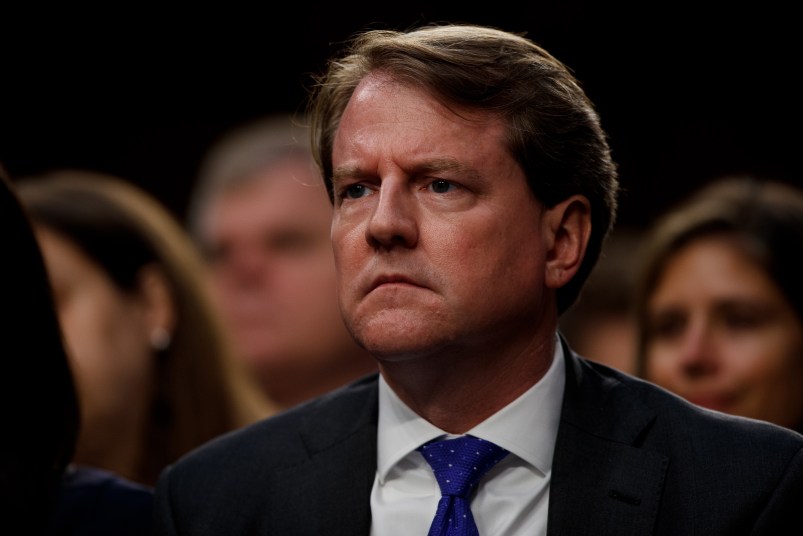Apple notified former Trump White House counsel Don McGahn and his wife last month that the Justice Department secretly subpoenaed information about their accounts in February 2018, while McGahn served as White House counsel under the Trump administration, according to the New York Times on Sunday.
The Justice Department reportedly barred Apple from informing McGahn and his wife about the secret subpoena at the time.
It is unclear what the FBI was probing, nor whether the former White House counsel was a specific focus.
Apple reportedly informed McGahn, who was a chief point of contact between the White House and the Justice Department, that it complied with the DOJ’s subpoena in a timely manner, but would not disclose the information it handed over to the government.
According to the Times, Apple told the McGahns that the subpoena was issued on Feb. 23, 2018 by a grand jury in the Eastern District of Virginia.
The Times notes that although the rationale for why prosecutors obtained the subpoena remains unclear, there were a number of concurrent and notable events around the time it was issued — which includes the federal court in the Eastern District of Virginia being at the center of one aspect of the Russia probe led by special counsel Robert Mueller that zeroed in on former Trump campaign chairman Paul Manafort.
The Times’ report comes on the heels of its reporting last week of the Trump administration’s secret seizing of Apple data records of House Intelligence Committee Chair Adam Schiff (D-CA) and Rep. Eric Swalwell (D-CA).
Democratic leadership is demanding that former Attorneys General Bill Barr and Jeff Sessions — both of whom, alongside former Deputy Attorney General Rod Rosenstein, have denied knowledge of the secret subpoenas targeting Democratic lawmakers as part of a leaks probe during the Trump administration — to testify under oath.
The DOJ’s inspector general is launching a probe into the department’s seizure of the lawmakers and reporters’ data by the previous administration.
In a transcript released last week of his closed door testimony to the House Judiciary Committee, McGahn revealed that he felt “trapped” by former President Trump pressuring him to fire Mueller. McGahn worried that firing Mueller would implicate himself in obstruction of justice, and disclosed that he repeatedly declined orders from Trump out of concern that adhering to them could expose either himself or Trump to criminal liability.



